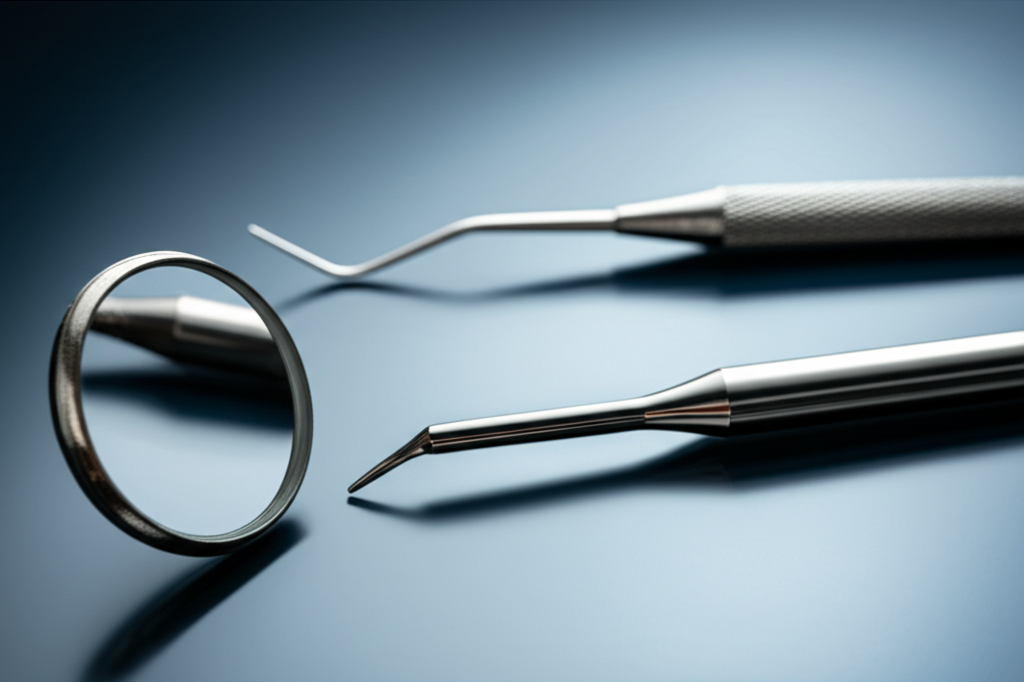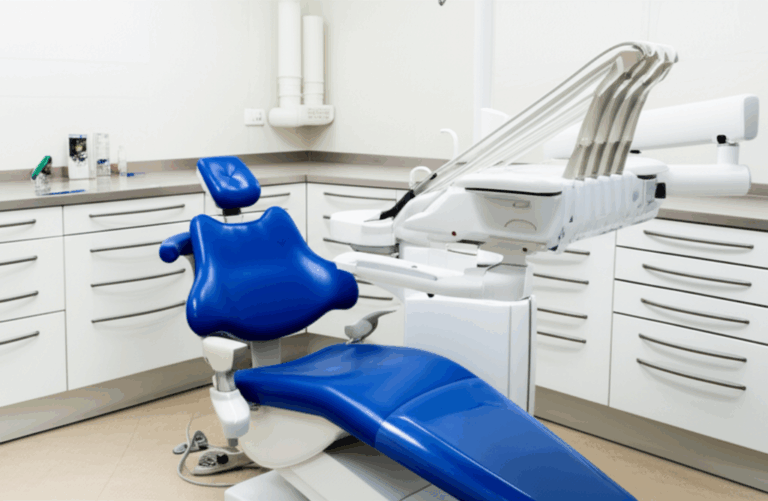
Are Periodontists Dentists? Understanding This Key Dental Specialty
Table of Contents
You have a tooth. You have gums. You want to keep both. That’s where this guide helps. I wrote this to make a tough topic easy. You’ll see who helps with gum disease. You’ll see why healthy gums matter. You’ll know when to see a periodontist and what to expect. Read on because keeping your teeth is easier than getting new ones.
What Is a Periodontist?
Let’s start with a simple answer. A periodontist is a dentist who focuses on the gums, the bone, and the stuff that keeps your teeth in place. This area is called the periodontium. That word is big. The idea is simple. It’s the support system for your teeth.
You might wonder, what does a periodontist do on a normal day? They find and treat gum problems. They help stop gums from bleeding. They do deep cleanings. They work with loose teeth. They put in dental implants when teeth are gone. They also fix thin gums and bone. In short, they are your gum disease pro.
I like plain words. Here’s what periodontics means: It’s the part of dentistry that stops, finds, and treats gingivitis and periodontitis. It also includes putting in and taking care of dental implants and adjusting the shape of gums.
Are Periodontists Dentists or Something Else?
Short answer—yes. Periodontists are dentists. Every periodontist is a dentist first. They finish dental school and get a DDS or DMD. They pass exams. They treat people. Then they study more to become a specialist.
You may think, is a periodontist a specialist or just a regular dentist? A periodontist is a specialist. Think of the dental team—there’s the general dentist, endodontist, orthodontist, oral surgeon, and prosthodontist. The periodontist is the gum and implant pro. They all look after your mouth in different ways.
Someone asked once: What kind of dentist is a periodontist? Simply, they are dentists who work on the foundation. Without healthy gums and bone, your teeth can’t stand. Periodontists protect that base so your smile stays put.
How Do You Become a Periodontist?
Let’s go over the steps. First, finish college. Next, go through four years at dental school to get a DDS or DMD. That’s how you start becoming a periodontist. Third, do about three more years as a resident learning periodontics.
In that time, they learn how to spot gum problems, make treatment plans, do scaling and root planning, practice gum surgery, place implants, and do gum and bone repair. They also learn how to numb pain and help people who are nervous.
Many periodontists want board certification from the American Board of Periodontology. The American Academy of Periodontology helps with training and new studies. Lots of periodontists teach at dental schools and keep learning through their career.
What Does a Periodontist Do Each Day?
If you’ve got gum trouble, a periodontist handles gum disease treatment. They work with gingivitis and more serious periodontitis. They treat bleeding gums and bad breath using deep cleaning and better home care. They show you how to clean your teeth at home to prevent issues.
Lots of people also come in for dental implants. The periodontist puts in implants with careful plans. If bone is thin, they add bone. If gums are thin, they add gum tissue. They take care of implants and fix problems if the gum around the implant gets sore or swollen. They want your implants to last for a long time.
Some people want a better-looking smile. Cosmetic periodontists can help. They fix a smile that shows too much gum. They shape the gumline using regular tools or a laser. They rebuild lost gum and bone if possible.
Periodontist vs. General Dentist: What Is the Difference?
Your general dentist is your main tooth doctor. They do checkups, cleanings, and look for holes in your teeth. They fix small things. They take out basic teeth. They watch your gums and help prevent problems.
Periodontists do other things. They take on serious gum disease. They fix bone and gums. They put in and care for implants. They also work with your general dentist to make sure everything fits and works as it should. This kind of teamwork is important in dental care.
You may ask, can a general dentist treat gum disease? Yes, if it’s mild. They can help early gingivitis and treat light to medium gum trouble. But if things are serious, a dentist will send you to a periodontist. Getting the right help can save your teeth.
When Should You See a Periodontist?
Problem: You see blood when you floss. Your breath doesn’t smell good. Your gums look swollen. Your teeth move a bit. Your gums are pulling away. It hurts to chew. These are clear gum disease signs.
Let’s get real: Gum disease starts quietly. Then it grows. Bleeding leads to bone loss. Teeth get wobbly. Infection can spread. You might lose teeth. You might hide your smile or stop chewing with certain teeth.
Here’s the fix: See a gum specialist. When should you see a periodontist? Go if your gum problems are bad. Go if your gums have moved back. Go if you need implants. Go if your teeth are loose. Go if you have diabetes or if you smoke, because healing is slower. Go if you’re worried about your heart and gums. Go if you’re pregnant and your gums are sore or swollen. Go if some meds make your gums bleed or swell. Basically, see a periodontist when things get worse or don’t get better.
How Much Does a Visit Cost and Will Insurance Help?
Lots of people ask: How much does it cost to see a periodontist? Prices change by where you live and what you need. A first checkup with x-rays and advice is less money than a surgery. Cleaning is less than gum surgery. Implants cost more than deep cleaning.
Will insurance pay for it? Many dental plans pay part of the cost for cleanings and basic gum care. Some will pay for gum surgery if you ask first. Dental implants sometimes have some coverage. Medical insurance helps if gum problems are linked to other health issues. Ask your dentist about cost differences between them and the periodontist.
What Happens Before and After Treatment?
Good care starts with figuring out what’s wrong. The periodontist uses special tools, x-rays, and even 3D scanners to check your mouth. They make a treatment plan and tell you what they’ll do step by step. You’ll get easy instructions on how to take care of your teeth and gums.
Before any surgery, you’ll get simple tips on how to get ready. You might get antibiotics or a mouth rinse. If you’re nervous, you can have medicine or a gas that calms you down. After treatment, you’ll get help for pain and check-ups to see if things are healing. The dental team helps you keep your gains with special deep cleaning and support.
How Do Periodontists Use New Dental Technology?
This field moves fast. New tech has made care better. Lasers can help clean deep pockets. 3D pictures help plan where to place implants. Computers help plan treatment with more accuracy. New ways to rebuild bone and gums get better all the time. This means better, safer dental work.
Lab work also matters. A good crown or bridge sits best on healthy gums. Good fit keeps out germs. Your team may work with a special digital dental lab for custom parts if you get implants. For new teeth and repairs, they might use a dental ceramics lab or a crown and bridge lab for strong, real-looking results.
Who Else Is On Your Smile Team?
Your general dentist leads the team. The periodontist looks after the gums and implants. The endodontist does root canals. The orthodontist straightens teeth. The prosthodontist does big mouth repairs. The oral surgeon handles tough surgeries. Together they cover all your dental needs.
This team approach is key. All these people working together mean better care for you. Your whole plan might have steps that fix gums and put in new teeth. Hygienists stop problems before they start, and assistants help things go smooth.
Is a Periodontist Right for Kids, Seniors, and Special Needs?
Do kids see periodontists? Sometimes, yes. They help with early gum troubles, tongue or lip ties, and remind teens with braces how to keep gums healthy.
Periodontists help older people who lose bone, have dry mouth, or loose teeth. Some need care adjusted because of medicines that hurt gums. They also help people who need extra time, simple tools, or medicine to help calm down. For people whose bodies don’t fight infection well, the care is very gentle and careful.
How Do You Find and Choose a Periodontist?
Finding a periodontist is pretty easy. Start by asking your dentist for a specialist they trust. Search member lists from the American Academy of Periodontology. Ask if the person is board-certified. See if they work in a hospital or have their own private place.
Ask about their experience with tough cases and implants. Ask if they offer ways to help nervous people. Ask how they check on you after treatment and how they teach patients to care for gums. The right periodontist will answer your questions and make you feel comfortable.
Key Facts and Numbers You Should Know
Here’s a small table with facts:
| Category | What You Should Know | Why It Matters |
|---|---|---|
| How common is gum disease | About 47% of adults 30+ have some gum disease and about 70% of adults 65+ have it | Lots of people need to check for gum problems |
| Training path | Periodontists finish college, 4 years dental school, then about 3 years extra training | They have practice and lots of skill |
| Implants and success | Implants work well and last long if cared for | Good planning and follow-up protect your teeth |
| Health links | Bad gum disease can raise risks for heart problems and can make diabetes harder to manage | Taking care of gums helps your whole body |
| Team care | General dentists send patients with big gum problems to specialists | Getting the right help early saves teeth |
Problem: Many wait too long. Agitate: Waiting leads to losing teeth and spending more money. Solution: Get the right care early and stick with checkups.
FAQs
Q: Do periodontists do regular dental work?
A: Some do simple stuff, but most focus on gum disease and implants. Your regular dentist will handle your checkups and work with your specialist.
Q: Can a general dentist fix gum disease?
A: Yes, if it’s not too bad. They’ll send you to a specialist when it’s more serious.
Q: What happens at my first visit?
A: They check your gums, measure spaces around teeth, take x-rays, and build a plan for your care.
Q: Can lasers replace surgery?
A: Lasers help in some cases, but not for everything. Your exact problem decides the best tool.
Q: Are implants safe if my gums are sick?
A: You need healthy gums first. Treat the disease, then put in the implant. Good cleaning at home helps a lot, too.
Q: Do periodontists use sedation?
A: Yes. Medicine and laughing gas can help keep you calm.
Q: What are signs I should see a periodontist now?
A: Bleeding that doesn’t stop, pain when biting, teeth that move, gums that are shrinking, really bad breath, or pus around teeth.
Q: Who approves periodontist training?
A: The American Academy of Periodontology helps with classes. The American Board of Periodontology sets the bar for specialists.
References
- Centers for Disease Control and Prevention. Periodontal Disease Facts. Accessed current year.
- American Academy of Periodontology. Specialty Overview and Patient Resources. Accessed current year.
- American Board of Periodontology. Certification Information. Accessed current year.
- American Dental Association. Dental Specialties and Education Pathways. Accessed current year.
- American Heart Association. Periodontal Disease and Heart Health: Scientific Statements. Accessed current year.
- American Diabetes Association. Oral Health and Diabetes Guidance. Accessed current year.
- Peer-reviewed clinical periodontics journals on dental implant results and care. Accessed current year.
Clinical review for accuracy: Reviewed by a licensed, board-certified periodontist.
Key Takeaways
- Periodontists are dentists with extra practice in gum disease, bone repair, and dental implants.
- They finish dental school and do about 3 more years of hands-on learning.
- See a periodontist if you have bleeding gums, loose teeth, shrinking gums, or need implants.
- Good care means finding problems, treating them, and keeping teeth clean after.
- Working with a team of different dental specialists brings the best results.
- Insurance often pays for part of gum care—sometimes even implants.
- New tools like lasers and computers make dental care easier and more comfortable.
- Seeing a specialist sooner saves teeth and money.
- Ask about certification, if you can have medicine to help calm nerves, and how they’ll keep your mouth healthy long term.
- For great results, your dental team may work with a digital dental lab, an implant lab, a ceramics lab, or a crown and bridge lab for custom parts and strong, real-looking teeth.







